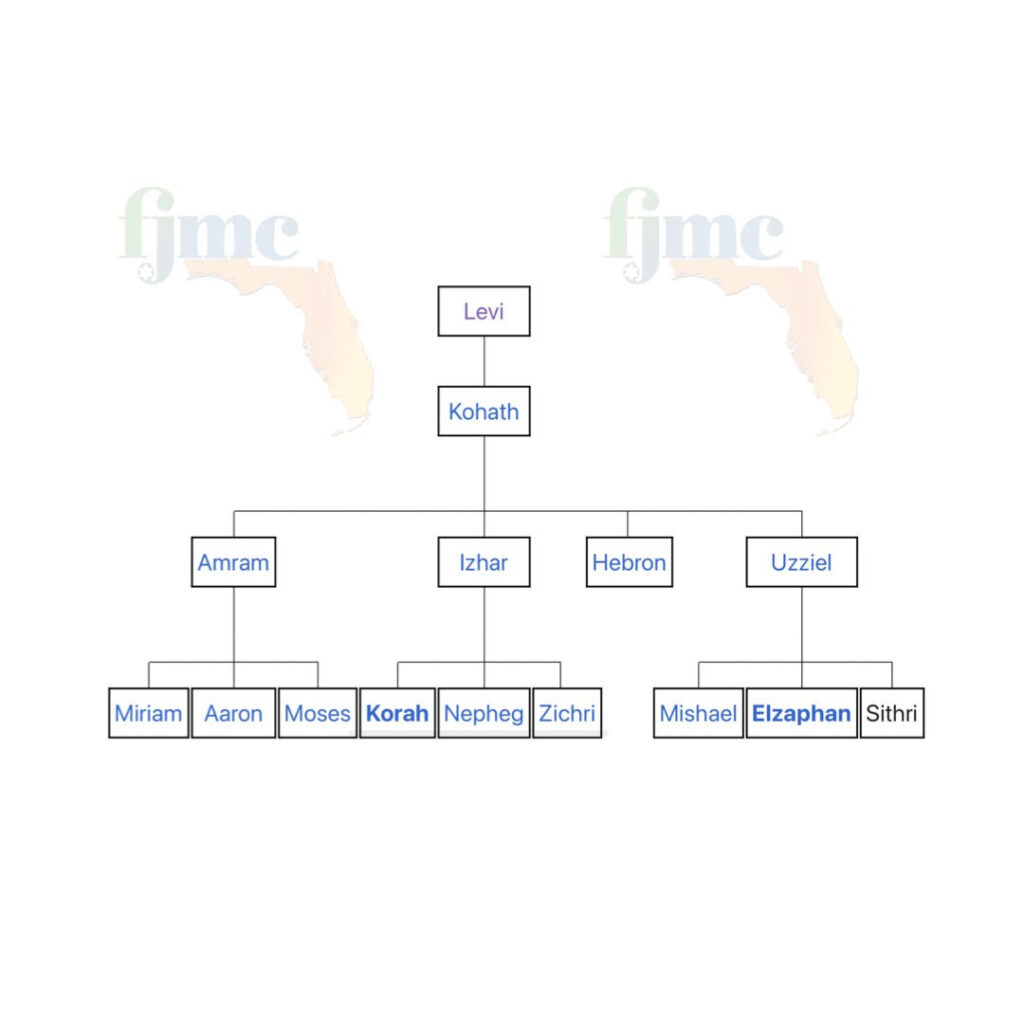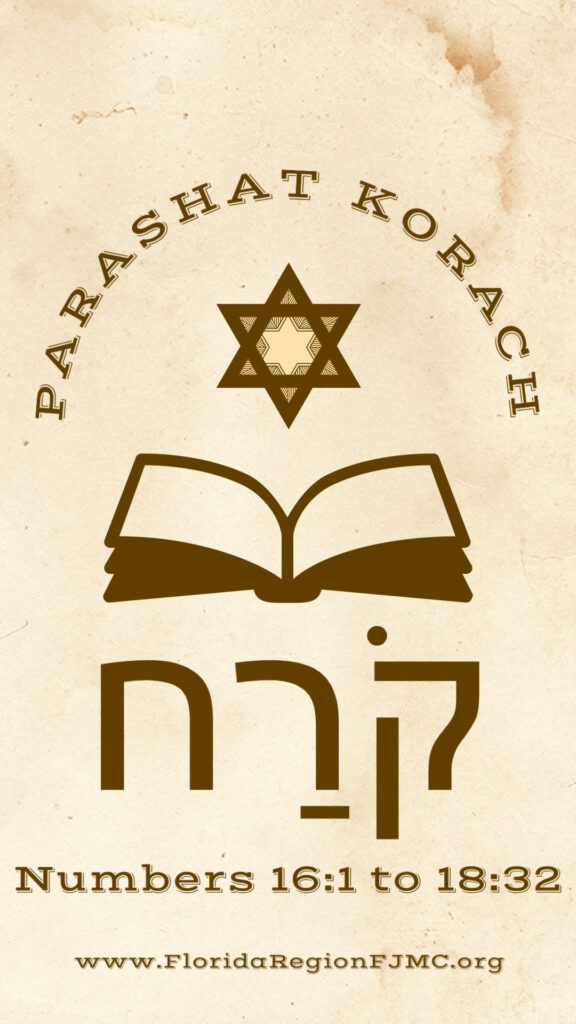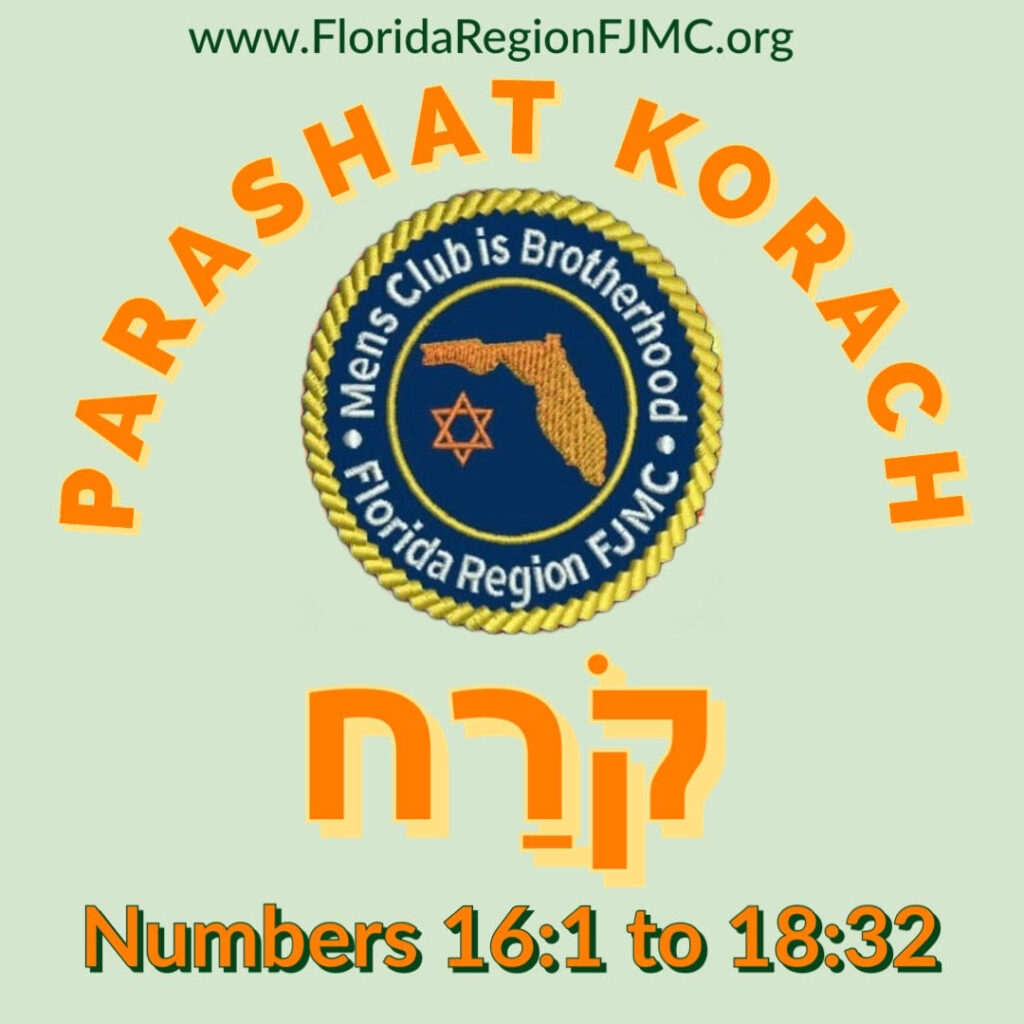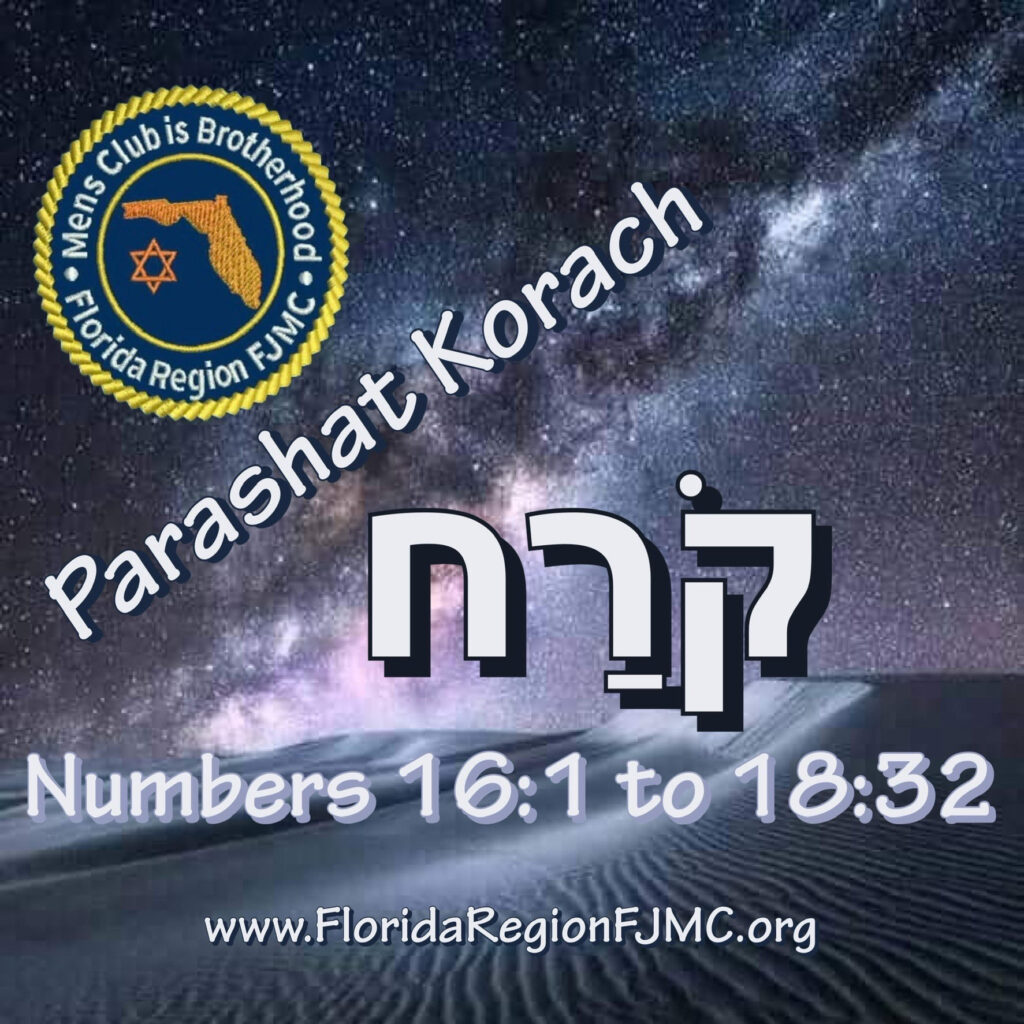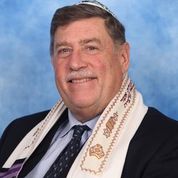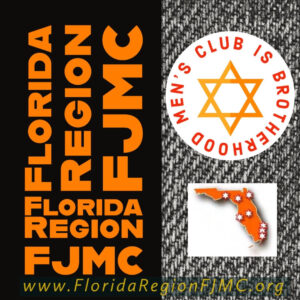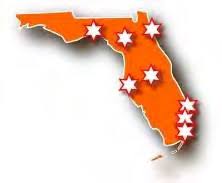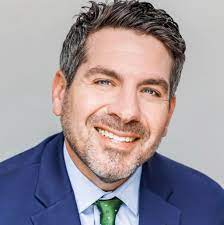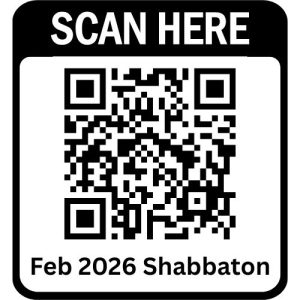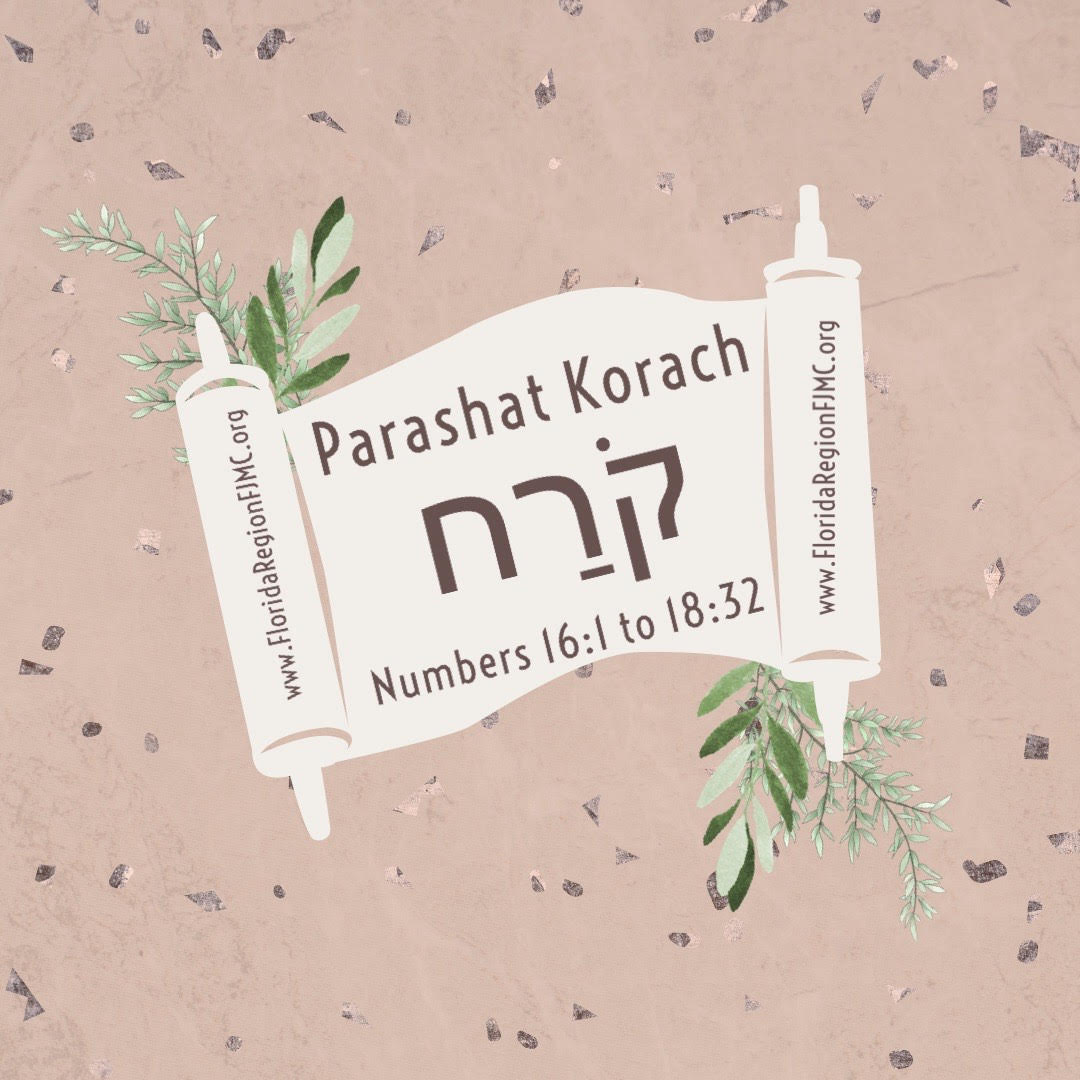
When you Choose Shabbat, you choose to learn that every Shabbat is different and special. Last week I learned about Parashat Korach (קֹרַח), the 38th weekly Torah portion in the annual cycle of Torah readings.
According to Wikipedia, Korach (קֹרַח), Numbers 16:1 to 18:32, contains 5,325 Hebrew letters, 1,409 words, 95 verses and makes up 184 lines of the Torah scroll. The parashah tells the story of Korach’s failed attempt to overthrow Moses.
Rabbi Michael D Klein of Temple Torat Emet offers his insights on this week’s Torah reading, Korach:
“Tevya, in Fiddler on the Roof, sings about being a rich man. He says, when you’re rich they think you really know!” Unfortunately, in the Sedra of this week, Korach and his sycophants have the same issue. It’s not that we, as Jews, don’t respect those who are successful. On the contrary, wherever Jews have lived we have made an impact on society intellectually, technologically, and financially.
The problem with Korach is the problem we see in our society very much today. Individuals of wealth and influence, whether earned or inherited, sometimes begin to act as if they know it all and are above the law.
Korach’s rebellion, against the leadership of Moses and Aaron, was not for the sake of the good of the nation. Instead, he sought to usurp the leaders and take ownership for himself to further his own motives. Individuals, such as Korach, come to believe that they are self-made people. Instead of showing gratitude to Hashem for their success and sharing their G-d given gifts with the needy, they choose to ignore the norms and goals of a healthy society which the Torah teaches us.
I often think of how much impact there would be if the wealthiest and most powerful people in our society used their influence and resources to benefit others who are less fortunate. It is not surprising, that the punishment chosen for Korach was so drastic and also resulted in the deaths of so many of his followers.
Interesting to note, his own sons do not follow in their father’s rebellion which teaches us an interesting lesson about the limitations of the commandment of honoring parents.
The important lessons of this Sedra are summarized in the words of Pirkey Avot- ethics of the sages. Rabbi Yehoshua ben Levi states, “Do not seek high positions and do not covet honor …..do not crave the table of kings because your honor is greater than theirs and your crown is greater than theirs”.
Perhaps the greatest sin of Korach was that he led others into sin and brought about their destruction also. We must always be mindful that what we do and say is seen and sometimes followed by others. Our motives must always be pure and transparent and our goals must always be positive, so that we follow the correct path and do not lead others astray by our example.
Questions to Ponder:
- Where did the Tribe of Reuven encamp? Why is this important in the Korach narrative?
- What important lesson did Moses learn about ending a plague? From whom did he learn this?
- Why is the story of the almond branches flowering so important?
- The covenant between G-d and Aaron is sealed by salt. Why is this so important?”
Rabbi Michael D. Klein attended Yeshiva College of South Florida and served as Torah Reader, Hebrew teacher, Chazzan and spiritual leader of various synagogues throughout South Florida. In January 2015 he became Ritual Director, Bnai/Bnot Mitzvah instructor and 7th grade Hebrew instructor for Temple Torat Emet of Boynton Beach. In October 2019 he was accepted into an accelerated track and received his shicha from Yeshiva Adath Wolkowisk and has been the Rabbinic leadership of Temple Torat Emet since August 2020. In September of 2022 he was appointed Rabbinic and Spiritual Advisor of the Florida Region of FJMC.
Choose Shabbat; choose to celebrate, to light candles, sing songs and learn a little Torah.
This moment of Jewish Learning is brought to you by the Florida Region of the Federation of Jewish Men’s Clubs (FJMC). We are part of a confederation of over 200 Jewish Men’s Clubs and Brotherhoods representing over 20,000 members across the United States, Canada, Latin America, and beyond. Learn more about how your Jewish Men’s Club or Brotherhood can affiliate with the FJMC at: https://www.fjmc.org/content/affiliating-fjmc.
The Florida Region of FJMC serves the needs of affiliated Men’s Clubs and Brotherhoods throughout the State of Florida. Get to know more about the FJMC Florida Region and our growing network of Jewish Men’s Clubs and Brotherhoods at www.floridaregionfjmc.org and please visit and LIKE our Florida Region FJMC Facebook Group at www.facebook.com/FloridaRegionFJMC.
